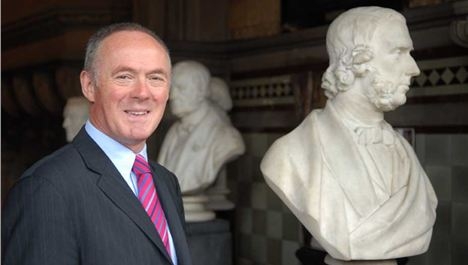THE FOLLOWING is a release from Manchester City Council, it declares that the city is poised to become a global economic hub, with business and people (particularly graduates), skills and talent pouring into the city, making it the UK's fastest growing population - estimates suggest there'll be an extra 80,000 people in Manchester by 2027.
But that while around £5,000 is spent on transport infrastructure per person in London, the figure in the rest of the country is closer to £700.
However, with the BBC's Mind The Gap programme highlighting the economic forces polarising Britain, that if there is to be a 'counterweight' to the economic dominance of London, Manchester has the greatest potential but that more needs to be done to rebalance London's share:
Manchester City Council release:
'Manchester leaders say the city region is already developing as a global economic hub, but still supports the contention in the BBC programme Mind the Gap that the UK’s economy needs to be rebalanced in relation to London.
Evan Davis’ programme, screened earlier this week, argued that the country’s economy was disproportionately weighted towards the capital, with London taking up too great a share of the UK’s population and talent.
The presenter argued that far more money being generated and spent in London than in the rest of the country, and if another city is to emerge which can act as a ‘counterweight’ to the capital, it would need to be a large hub which can attract talent and act as a driver for economic growth.
The Manchester Independent Economic Review (MIER) said that the city region, due to its size, skills base, talent pool and political and business structures was the city outside London with the greatest economic potential to grow into a global growth hub.
Since the report was published in 2009, the Greater Manchester Combined Authority has been created – enabling Manchester to work much more closely with other councils across the region.
And the last census, made in 2011, showed that Manchester was the fastest growing city in the UK with a 19 per cent increase in population.
The City Council expects this figure to grow by an extra 80,000 people by 2027, with tens of thousands of young people attracted by new jobs created in the city. A high proportion of the city's population are graduates and the local economy is strong enough for Manchester to have been a net importer of graduates for a number of years.
 Sir Richard Leese, Council leader - on the left
Sir Richard Leese, Council leader - on the left
The city region, along with other members of the Core Cities group, is also set to benefit from a campaign launched by London mayor Boris Johnson to give greater financial freedom to major English cities.
The campaign aims to give authorities such as Manchester tighter control of tax revenues, including council tax, stamp duty, land tax and business rates – giving cities the freedom to invest in their own economies, enabling them to become more competitive and so create jobs, as well as to join up public services and plan for future needs.
Sir Richard Leese, leader of Manchester City Council, said: "I’d like to welcome a lot of the points made by Evan Davis in this programme, and hope it encourages debate about this important subject. We have recognised for many years that the Manchester city region has the potential to become a major global hub, creating jobs, attracting talent and generating growth.
"Authorities and other organisations within the city region have now been able to cooperate more closely, in order to unleash our economic potential, while our recent joint campaign with the Core Cities group, the Mayor of London and London Councils seeks to provide us with the powers and resources we need to accelerate growth and enable us to invest in transport and housing.
"The programme also made the point that transport plays a crucial role in helping hubs develop by connecting people with jobs – but that while around £5,000 is spent on transport infrastructure per person in London, the figure in the rest of the country is closer to £700. Adding to our own investment through the Greater Manchester Transport Fund, massive transport infrastructure plans such as the Northern Hub and HS2 are now providing us with a once in a lifetime opportunity to create essential catalysts for growth and deliver a step change in productivity for the UK economy."'










